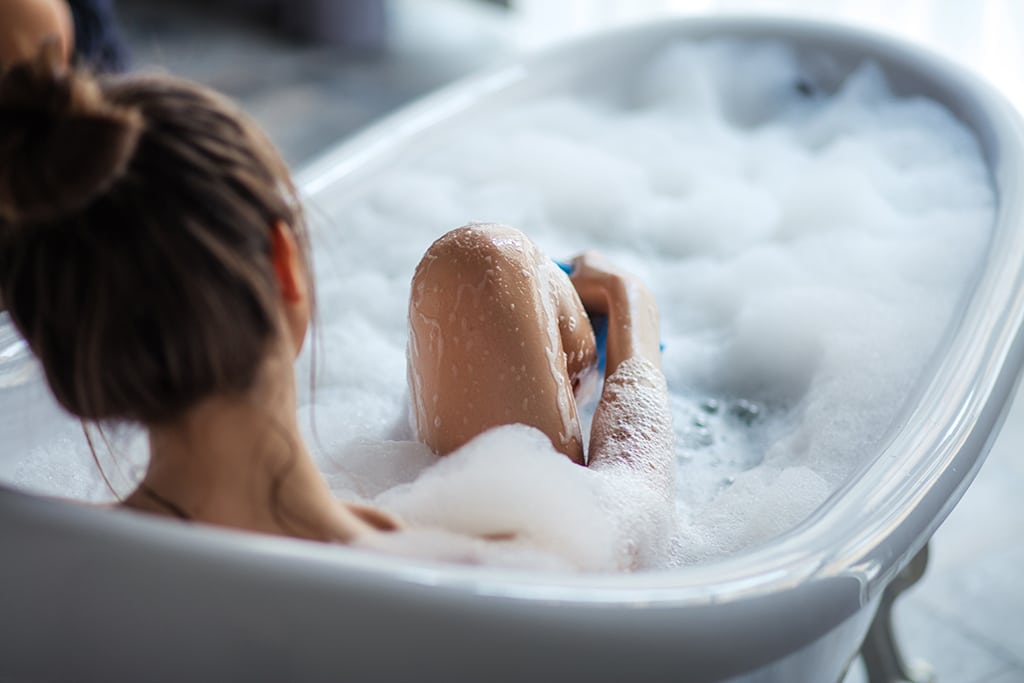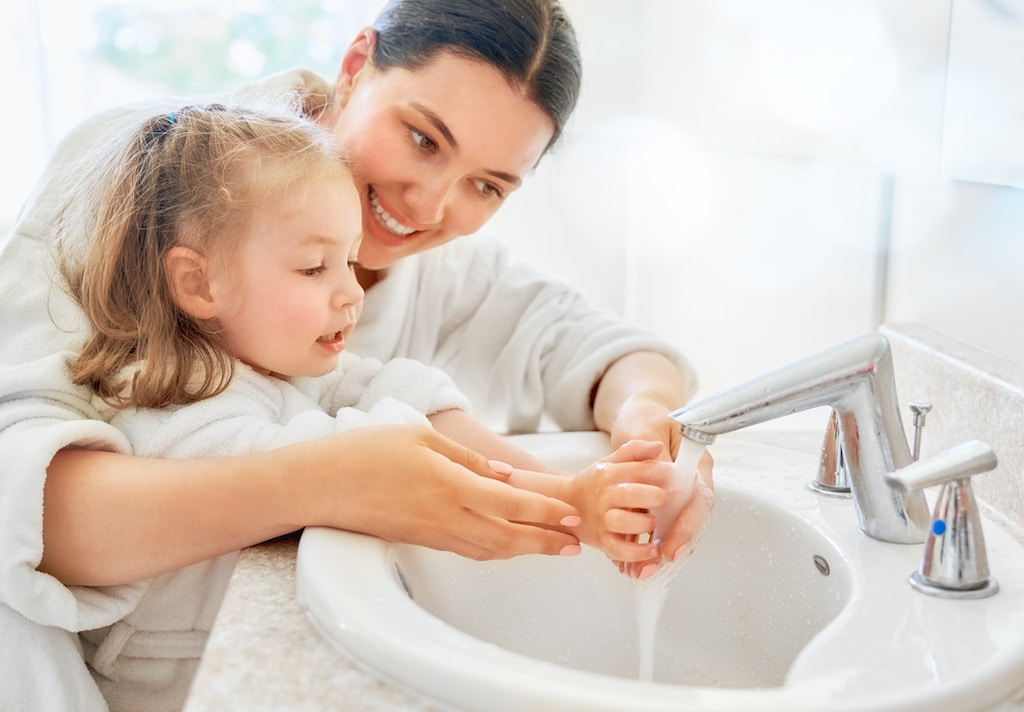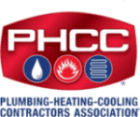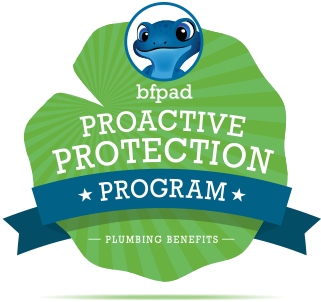
Top 5 Tips to Prevent Hard Water Buildup
Have you noticed stubborn white spots on your faucets and showerheads?
You might be dealing with hard water buildup. This common issue affects many households, especially in areas with high mineral content in the water supply. Understanding hard water and its impact is the first step toward effective prevention and maintenance.
Hard water contains a high concentration of dissolved minerals, primarily calcium and magnesium. When water passes through limestone or chalk deposits, it picks up these minerals, resulting in what we know as hard water. While it’s safe to drink, hard water can cause significant problems in your home.
Understanding these signs can help you address hard water issues before they escalate, saving you time and money on repairs and replacements.

The Impact of Hard Water Buildup
Hard water buildup is more than just an annoyance; it can have serious implications for your home’s plumbing system and appliances. Let’s delve into the specific impacts to understand why addressing hard water is crucial.
Effects on Plumbing Systems
One of the most significant consequences of hard water buildup is its effect on plumbing systems. Here’s how it can wreak havoc:
- Pipe Clogging
Mineral deposits accumulate inside pipes over time, leading to reduced water flow and eventually blockages. This not only affects water pressure but can also result in costly plumbing repairs.
- Corrosion
Hard water can accelerate the corrosion of metal pipes, causing leaks and structural damage. This is particularly problematic in older homes with outdated plumbing.
- Increased Pressure
As pipes narrow due to buildup, the pressure inside the plumbing system increases, potentially leading to pipe bursts and significant water damage.
Consequences for Household Appliances
Household appliances that use water are particularly vulnerable to the effects of hard water. Here’s what you need to watch out for:
- Water Heaters
Hard water causes scale buildup inside water heaters, reducing their efficiency and increasing energy costs. The heater has to work harder to heat the same amount of water, leading to higher utility bills and a shorter appliance lifespan.
- Dishwashers and Washing Machines
Mineral deposits can clog and damage the internal components of dishwashers and washing machines, leading to frequent breakdowns and repairs. Additionally, hard water reduces the effectiveness of detergents, meaning you’ll use more to achieve the same cleaning power.
- Coffee Makers and Kettles
Appliances like coffee makers and kettles are prone to scale buildup, which can affect their performance and the taste of your beverages.
Understanding the impact of hard water buildup on your plumbing and appliances highlights the importance of addressing this issue promptly. By doing so, you can avoid costly repairs and extend the life of your home’s essential systems.
Top 5 Tips to Prevent Hard Water Buildup
Preventing hard water buildup in your home requires a proactive approach. Here are the top five tips to help you keep your plumbing systems and appliances running smoothly.
Tip 1: Regular Cleaning and Maintenance
Routine cleaning and maintenance are essential in managing hard water buildup. Here’s how to keep your fixtures free from deposits:
How to Clean Faucets and Showerheads
- Remove Aerators and Showerheads: Take them off to clean the inside thoroughly.
- Soak in Vinegar: Submerge the parts in a bowl of vinegar for a few hours. The acetic acid in vinegar helps dissolve mineral deposits.
- Scrub with a Brush: Use a soft brush to scrub away any remaining deposits.
- Rinse and Reattach: Rinse the parts thoroughly with water and reattach them.
Regular cleaning can prevent buildup and maintain optimal water flow.
Tip 2: Use of Water Softeners
Water softeners are one of the most effective ways to combat hard water. They work by removing minerals from the water before it enters your home.
Types of Water Softeners
- Salt-Based Softeners: These systems use sodium ions to replace calcium and magnesium ions, effectively softening the water.
- Salt-Free Softeners: These systems condition the water without adding salt, making them a good choice for those on low-sodium diets.
Benefits of Installing a Water Softener
- Extended Appliance Life: Appliances last longer with less mineral buildup.
- Improved Cleaning: Soap and detergents work better with soft water.
- Healthier Skin and Hair: Soft water can reduce dryness and irritation.
Tip 3: Install a Whole House Water Filtration System
A whole-house filtration system treats water as it enters your home, ensuring that all water sources are free from minerals and other contaminants.
How Filtration Systems Work
- Sediment Filters: Remove large particles like sand and silt.
- Activated Carbon Filters: Absorb chlorine and organic compounds.
- Ion Exchange Filters: Remove calcium and magnesium ions, softening the water.
Installing a whole-house system ensures comprehensive protection against hard water.
Tip 4: Routine Pipe Inspections
Regular inspections can identify and address issues before they become major problems.
Importance of Professional Inspections
- Early Detection: Spotting issues early can prevent costly repairs.
- Expert Advice: Professionals can recommend the best solutions for your specific hard water problems.
Tip 5: Use of Descaling Agents
Descaling agents can help remove and prevent mineral buildup in pipes and appliances.
Safe and Effective Descaling Products
- Citric Acid: A natural and effective descaling agent.
- Commercial Descalers: Specifically designed for use in household appliances.
Using descaling agents regularly can maintain the efficiency of your plumbing and appliances.
Hard Water Solutions in Irving, TX
Living in Irving, TX, you might have encountered hard water issues that can impact your home’s plumbing and appliances. Fortunately, there are local solutions to help you manage and prevent hard water buildup effectively.
Local Services and Providers
Irving, TX, offers a range of professional services that specialize in hard water treatment. Here are some top local providers:
- Irving Water Solutions: Specializes in water softeners and filtration systems tailored to combat hard water.
- Pure Water Pros: Offers comprehensive water testing and customized solutions to ensure your home has the best water quality.
- Lone Star Plumbing: Provides plumbing services that include hard water treatment and regular maintenance to keep your pipes clear.
These providers offer expert solutions to tackle hard water issues, ensuring your home’s plumbing and appliances remain in top condition.
Choosing the Right Service for Your Home
Selecting the best service for your hard water needs involves considering several factors:
- Experience and Expertise: Look for providers with a proven track record in dealing with hard water issues. Check for certifications and customer reviews.
- Customized Solutions: Every home is different. Ensure the provider offers solutions tailored to your specific water quality and household needs.
- Cost and Value: While cost is an important factor, it’s crucial to consider the long-term value of the service. Investing in quality solutions can save you money on repairs and replacements down the line.
- Customer Service: Excellent customer service is a sign of a reliable provider. Choose a company that offers ongoing support and maintenance options.
By selecting a reputable service provider in Irving, TX, you can effectively manage hard water buildup and protect your home’s plumbing system and appliances from damage.
Benefits of Preventing Hard Water Buildup
Preventing hard water buildup in your home offers numerous advantages, extending beyond just maintaining clean fixtures. Here are the key benefits of taking proactive steps against hard water issues.
Prolonging the Life of Appliances
Hard water can significantly reduce the lifespan of household appliances. By preventing buildup, you can ensure your appliances run efficiently and last longer.
- Water Heaters: Preventing scale buildup in water heaters can enhance their efficiency, reducing energy consumption and lowering your utility bills.
- Dishwashers and Washing Machines: Regular maintenance and the use of water softeners can prevent clogs and mineral deposits, reducing the frequency of repairs and replacements.
- Coffee Makers and Kettles: These small appliances will perform better and last longer without the scale buildup that hard water causes.
Improved Water Flow and Pressure
Mineral deposits from hard water can clog pipes and reduce water flow. By preventing buildup, you can maintain optimal water pressure throughout your home.
- Consistent Water Pressure: Clear pipes mean better water pressure, which is essential for showers, washing machines, and dishwashers.
- Reduced Clogging: Preventing buildup minimizes the risk of clogs, ensuring a smooth and consistent water supply.
Enhanced Cleaning Efficiency
Hard water reduces the effectiveness of soaps and detergents, leading to more soap scum and less effective cleaning.
- Brighter Clothes: Soft water helps detergents work more effectively, leaving your clothes cleaner and brighter.
- Spotless Dishes: You’ll notice fewer water spots and film on dishes and glassware when using soft water.
- Easier Bathroom Cleaning: Soft water reduces the amount of soap scum buildup, making it easier to keep your bathroom clean and hygienic.
Healthier Skin and Hair
Hard water can have adverse effects on your skin and hair. By using soft water, you can enjoy noticeable improvements in personal care.
- Softer Skin: Soft water can help reduce dryness and irritation, leading to healthier skin.
- Shinier Hair: Without the mineral buildup that hard water causes, your hair can look shinier and feel softer.
By understanding and addressing hard water issues, you can enhance your home’s comfort, efficiency, and longevity. These benefits make it clear that taking preventive measures against hard water buildup is a wise investment for any homeowner.
Cost-Effective Measures to Combat Hard Water
Addressing hard water issues doesn’t have to be expensive. There are several cost-effective solutions, both DIY and professional, that can help you manage and prevent hard water buildup in your home.
DIY Solutions
For those who prefer a hands-on approach, there are several DIY methods to reduce hard water’s impact:
- Vinegar and Lemon Juice: These natural acids can effectively dissolve mineral deposits. Use them to clean fixtures, appliances, and even coffee makers.
- Baking Soda: Combine with vinegar to create a powerful cleaning paste for scrubbing stubborn buildup on surfaces and fixtures.
- Regular Descaling: Use store-bought descaling agents or natural alternatives like citric acid to regularly descale appliances such as kettles and coffee makers.
- Lime Removal: Scrub lime buildup from faucets and showerheads with a brush and a solution of equal parts water and vinegar.
Professional Services and Their Costs
When DIY methods aren’t enough, professional services can provide comprehensive solutions for more severe hard water problems. Here’s a look at what you can expect in terms of costs and services:
- Water Testing: Initial water testing services range from $50 to $200, depending on the comprehensiveness of the test. This step is crucial to determine the exact mineral content in your water and tailor the solution accordingly.
- Water Softener Installation: The cost of installing a water softener varies based on the type and capacity, ranging from $500 to $2,500. This investment can save you money in the long run by extending the life of your appliances and plumbing.
- Whole House Water Filtration Systems: Installing a filtration system costs between $1,000 and $4,000, depending on the complexity and features of the system. These systems provide comprehensive water treatment, ensuring all water entering your home is free from minerals and other contaminants.
- Plumbing Services: Professional descaling and maintenance services can cost between $100 and $300 per visit. Regular maintenance can prevent costly repairs by keeping your plumbing system in optimal condition.
Investing in professional services can be more cost-effective in the long term, preventing the extensive damage and higher costs associated with severe hard water buildup.
By combining DIY efforts with professional services, you can effectively manage hard water issues without breaking the bank. This balanced approach ensures that your home’s plumbing and appliances remain in good condition, providing peace of mind and enhanced comfort.
Preventive Tips Recap:
- Regularly clean and maintain faucets and showerheads.
- Consider installing a water softener for comprehensive hard water treatment.
- Use a whole-house water filtration system to remove minerals before they enter your home.
- Schedule routine pipe inspections to catch and address buildup early.
- Utilize safe descaling agents to keep your appliances running efficiently.
Taking these steps can lead to significant benefits, including prolonged appliance lifespan, improved water flow, and healthier skin and hair. Investing in both DIY solutions and professional services ensures a balanced approach to combating hard water buildup.
For residents of Irving, TX, local providers offer tailored solutions to meet your specific needs. Choose a reputable service that offers the expertise and customer support you deserve.
Recap
Preventing hard water buildup is essential for maintaining the efficiency and longevity of your home’s plumbing and appliances. By implementing the top five tips—regular cleaning and maintenance, using water softeners, installing a whole-house water filtration system, conducting routine pipe inspections, and utilizing descaling agents—you can significantly reduce the negative impacts of hard water.
These proactive measures will not only save you money on repairs and replacements but also improve your overall quality of life, with better water flow, more effective cleaning, and healthier skin and hair. Invest in the right solutions today and enjoy a home free from the hassles of hard water buildup.

FAQs About Hard Water Buildup
Understanding hard water and its effects can help you manage and prevent buildup effectively. Here are some frequently asked questions about hard water buildup:
- What is the best way to prevent hard water buildup?
The best way to prevent hard water buildup is by installing a water softener. This system replaces calcium and magnesium ions in the water with sodium or potassium ions, effectively softening the water and preventing mineral deposits. Regular cleaning of fixtures and using descaling agents can also help keep buildup at bay.
- How often should I clean my faucets to prevent buildup?
It’s recommended to clean your faucets and showerheads at least once a month to prevent hard water buildup. Soaking them in vinegar for a few hours and scrubbing with a brush can effectively remove mineral deposits and keep your fixtures functioning properly.
- Can hard water affect my health?
While hard water is safe to drink, it can cause skin and hair issues. The minerals in hard water can make your skin dry and itchy, and your hair dull and lifeless. Installing a water softener can help improve the condition of your skin and hair by removing these minerals.
- Are water softeners expensive to maintain?
Water softeners require regular maintenance, including replenishing the salt supply, which typically costs between $20 to $40 per month. Some systems may also need occasional professional servicing, but overall, the maintenance costs are relatively low compared to the benefits of preventing hard water damage.
- What are the signs that I need a water softener?
Signs that you might need a water softener include:
- Frequent scale buildup on faucets and showerheads
- Soap scum on bathroom surfaces
- Dry skin and hair
- Reduced water pressure due to clogged pipes
- Appliances that require frequent descaling or are less efficient
Installing a water softener can address these issues and improve the overall quality of your water.
By understanding the common questions about hard water buildup, you can take informed steps to prevent and manage this issue in your home. Do you have any experiences with hard water that you’d like to share or any other questions about managing hard water buildup?



















